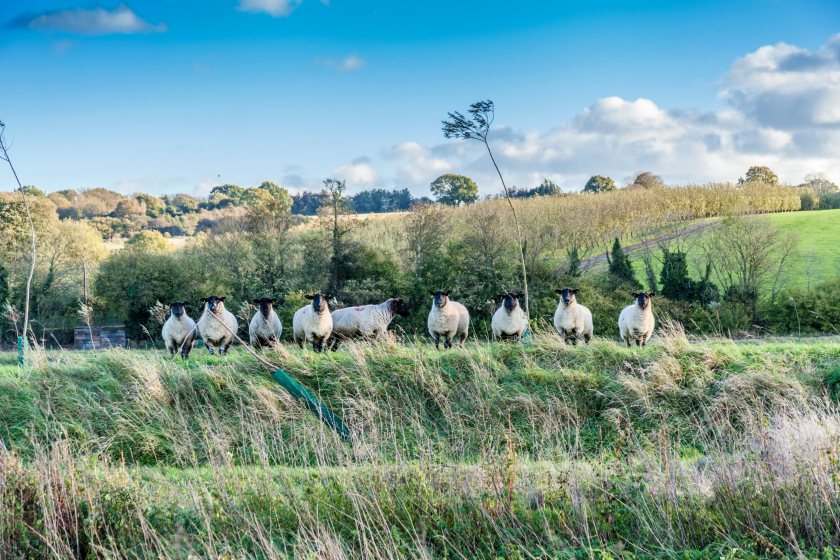
Kent is the latest county in England to confirm a case of bluetongue virus, bringing the total number of farms affected across the country to almost fifty.
Bluetongue virus 'BTV-3' was detected in sheep near Faversham on Thursday (12 September), Defra confirmed in its latest update on the situation.
In accordance with the government's disease control framework, a 20km temporary control zone (TCZ) has been declared area the affected premise.
According to the latest figures available, a total of 46 farms have now been affected by bluetongue following confirmation of the first case this summer, in late August.
So far, the highest concentration of cases is in the East of England, with Norfolk, Suffolk and Essex in a stricter 'restricted zone', established at the beginning of September.
A total of six counties across England - East Yorkshire, Norfolk, Suffolk, Essex, Lincolnshire and now Kent - have recorded BTV-3 cases.
The worsening situation follows the government's decision to permit the use of three bluetongue vaccines to curb infections.
The vaccines are suppressive, meaning they will reduce some of the clinical signs experienced by animals with the disease, but they do not prevent infection.
But the UK's Chief Veterinary Officer, Christine Middlemiss, said this development was still an important step forward in curbing the virus.
"They will aid in reducing clinical signs in animals and the impact of disease on farms, but it is not a protective vaccine," she said.
"We are still urging farmers to follow all of our guidance in order to prevent the disease spreading to their herds and any further.
“I urge farmers to contact their veterinarians if they wish to use the vaccines and to continue monitoring their animals frequently for clinical signs and report suspicion of disease immediately to the Animal Plant Health Agency.”
The restricted zone in Norfolk, Suffolk and Essex means livestock keepers must follow tougher restrictions on animal and germinal product movements.
All infected premises in the three counties are under restriction and susceptible animals can only be moved under licence from infected premises.
Essential moves of susceptible animals can take place without a licence within the restricted zone but cannot be moved out of the zone without a specific licence.
A general licence to move animals to designated abattoirs is also available.
It follows confirmation of the disease in a single sheep on a farm in Norfolk in late August, which made it the first UK bluetongue case this summer.
Before this, in November 2023, government vets identified the first case of the disease in Britain since 2007.
Bluetongue is a non-contagious, viral disease affecting domestic and wild ruminants, transmitted by biting midges.
It does not affect people or food safety, but outbreaks can result in prolonged animal movement and trade restrictions.
BTV is a notifiable disease. Suspicion of it in animals in England must be reported to the Animal and Plant Health Agency on 03000 200 301.
